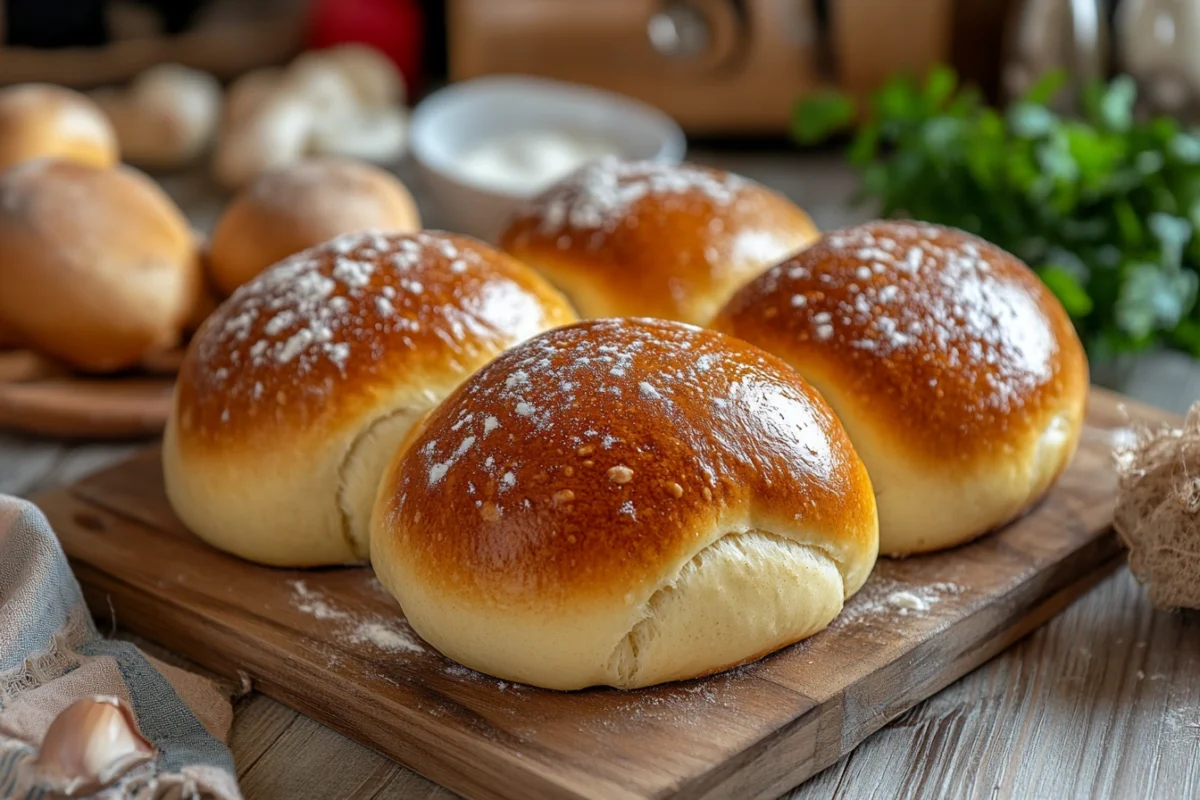Sourdough bread, with its unique tang and texture, has seen a surge in popularity. This article explores the natural benefits and drawbacks of this ancient bread. We’ll delve into what makes it different and if it’s the right choice for you.
The Allure of Naturally Leavened Sourdough
Sourdough bread is more than just another loaf. It’s a naturally fermented food. The process uses wild yeasts and bacteria. This gives it a distinctive taste and texture. Naturally, the bread-making process has unique advantages. It connects us to older traditions. The simplicity of the ingredients and the method is appealing to many people. Moreover, the control you have over the process allows for subtle variations. This is something you cannot achieve with most mass produced breads.
This is particularly evident in specialty products like naturally chewy sourdough bagels, which require extra care.
What Makes Sourdough Naturally Special?
Naturally, sourdough uses a ‘starter’ rather than commercial yeast. This starter is a mixture of flour and water. It ferments over time. This natural fermentation process leads to unique characteristics. The taste is often tangy, with a slightly chewy texture. This makes it different from other breads. Additionally, the specific types of ingredients and their ratios also determine the final product. Specifically, whole wheat, rye, or spelt flours will each impact the flavor and texture.
The Natural Process: A Closer Look
The fermentation is key to understanding sourdough. The wild yeasts and bacteria break down the starches. This process releases gases and acids. These acids contribute to the bread’s unique sour taste. This natural process is crucial to the final product. Furthermore, this slow and natural fermentation helps to develop more complex flavors. Consequently, the longer fermentation times are a key factor in creating authentic sourdough. Indeed, this slower approach requires patience but results in superior bread.
The Pros of Naturally Sourdough Bread
Sourdough offers several advantages. Its natural fermentation can have a positive effect on the body. Specifically, some of these advantages have also made it more popular and more sought after in bakeries. Basically, people are becoming more aware of its unique benefits compared to other breads.
Naturally Easier To Digest
Many find sourdough easier to digest than other breads. The natural fermentation breaks down gluten. This can make it more tolerable. Therefore, some people with sensitivities find it better. Additionally, naturally fermented foods often contain more good bacteria for the gut. The long fermentation process also helps to contribute to the breakdown of carbohydrates. This makes them easier for the body to process. Moreover, this process can reduce bloating and discomfort after eating.
Naturally Lower Glycemic Index
Sourdough may have a lower glycemic index. This means it causes a slower rise in blood sugar levels. This is beneficial for many. Naturally, the fermentation changes the carbohydrates. Consequently, it may be a better option than some other breads, especially for blood sugar management. Specifically, the acids produced during fermentation also play a role in lowering the glycemic response. Furthermore, this is particularly beneficial for those with diabetic tendencies.
Naturally Enhanced Nutritional Value
The fermentation process in sourdough increases the availability of some nutrients. Naturally, the breakdown of phytic acid helps the body absorb minerals. This can help you get more out of your food. Moreover, sourdough may contain higher levels of certain B vitamins. Specifically, this can include riboflavin and other B vitamins. The fermentation process also increases the antioxidant properties of the bread. Ultimately, it makes it more nutritious than other breads.
Naturally Better Flavor and Texture
The taste and feel of sourdough are unmatched. The natural fermentation gives it a unique tang. This flavor is complex and delicious. The texture is chewy and satisfying. Therefore, it’s a flavorful and textural experience. Specifically, the crust is usually wonderfully crisp, while the inside is soft. Indeed, these qualities make sourdough a real pleasure to eat. Furthermore, the aroma of freshly baked sourdough is also a big part of its appeal.
Naturally More Satisfying
Because of its unique flavor and texture, sourdough bread can be more satisfying. Consequently, you may feel fuller for longer. Naturally, foods that are satisfying can help control appetite. Additionally, the protein content, along with the fermentation process, helps to provide a sense of satiety. Specifically, this can be beneficial for maintaining a healthy weight. Moreover, the slow digestion rate also contributes to the feeling of being full longer.
Naturally Longer Shelf Life
Sourdough bread has a naturally longer shelf life compared to most other commercially produced breads. The acids produced during fermentation act as a natural preservative. Therefore, it stays fresh for a more extended period without relying on artificial preservatives. Specifically, this can reduce food waste. Ultimately, it is a more sustainable choice.
The Cons of Naturally Sourdough Bread
While there are many good things, some cons to sourdough also exist. Naturally, these should be considered. Additionally, it’s important to weigh these drawbacks against the advantages. Specifically, different people will find some issues more challenging than others. Therefore, this section is here to provide a balanced view.
Naturally Requires More Time
Making sourdough takes time. The natural fermentation is a slow process. This can be an issue for those who need a quick loaf. Thus, it requires careful planning. Additionally, the starter also requires regular care. Moreover, the maintenance of a sourdough starter can be a daily task. Indeed, this level of commitment is not something everyone has the time for. Ultimately, time is a key factor in the sourdough process.
Naturally Can Be Unpredictable
The natural fermentation process can sometimes be unpredictable. The environment and temperature affect it. Therefore, getting consistent results can sometimes be challenging. This is especially true for beginners. Ultimately, it may take practice to master sourdough baking. Furthermore, even experienced bakers can sometimes have challenges because of temperature and humidity variations. Consequently, some batches may turn out differently than expected.
Naturally Higher Cost
Sourdough bread, especially when bought, can sometimes be more expensive. Chiefly, this is because of the time and care it takes to make. Moreover, some bakeries use high-quality ingredients. Consequently, this can raise the price. Additionally, the skilled labor and the traditional baking methods also contribute to the higher cost. Specifically, if the bread is made with whole grain flours or unique varieties the cost can be even higher.
Naturally Can Be Dense
While many love the texture of sourdough, some may find it too dense. The natural formation of large air pockets is not always guaranteed. Therefore, it can feel heavy compared to lighter breads. Specifically, some may prefer a softer texture. Additionally, if the ingredients are not measured correctly, the bread may also be excessively dense. Consequently, this can be a drawback for people who prefer light and airy loaves. Moreover, the kneading process can also impact the density.
Naturally Higher Gluten Content
Despite the fermentation process, sourdough still contains gluten. Therefore, it is not always a good choice for those with severe sensitivities. Specifically, some people with extreme gluten sensitivity might not tolerate sourdough well. Additionally, the fermentation may reduce the amount of gluten, but not enough for those with intolerance. Moreover, cross-contamination in the bakery or kitchen also needs to be considered.
Naturally Requires Some Baking Skill
Baking good sourdough requires some skill and technique. Initially, the starter needs to be created and maintained. Subsequently, proper kneading and shaping are needed. Ultimately, learning these skills may take time and practice. Furthermore, many people may not have the time or the willingness to dedicate themselves to learning this. Consequently, for beginners, sourdough can be intimidating.
Naturally Sourdough vs. Other Breads
It is important to know how sourdough compares to other kinds of bread. Basically, it is different from commercially yeasted bread in many ways. Specifically, the differences can impact the flavor, texture and nutritional content of the bread. Therefore, knowing how they compare is essential for making an informed decision.
Naturally Different Fermentation
The difference is in the fermentation. Other breads typically use commercial yeast. Sourdough relies on wild yeasts and bacteria. This natural approach sets it apart. This process creates a unique flavor. Furthermore, it offers various other benefits. Consequently, the fermentation period can also vary, impacting flavor development. Indeed, this process is the key to distinguishing sourdough from other breads.
Naturally Texture and Flavor Contrasts
Comparatively, sourdough is more tangy and chewy. Other breads can often be softer and sweeter. The naturally achieved texture of sourdough is often denser. Eventually, you will notice the differences. Specifically, the flavor profile is usually much more complex. Furthermore, the crust is typically thicker and chewier compared to other breads. Moreover, the crumb structure is also significantly different.
Naturally Nutritional Differences
Nutritionally, sourdough has some advantages. For example, the fermentation enhances the availability of nutrients. While other breads may be made from whole grains, their benefits may be different. Specifically, the glycemic index can also vary widely. Additionally, the nutrient profile may also differ. Consequently, the types of flours used also play a significant role in the final nutritional makeup.
Naturally Enjoying Sourdough: How to Eat It
Sourdough is incredibly versatile. It can be enjoyed in many ways. Here are a few suggestions. Indeed, its unique flavor and texture make it a perfect pairing for many dishes. Moreover, the possibilities for using sourdough in your culinary adventures are endless.
Naturally With Simple Spreads
Sourdough is delicious with just butter or olive oil. The natural flavor needs very little to compliment it. Additionally, a sprinkle of sea salt will elevate the taste even more. Therefore, this simple combination is very satisfying. Specifically, the crust and the crumb pair perfectly with the rich flavors of olive oil. Furthermore, adding fresh herbs elevates the culinary experience.
Naturally For Sandwiches
Sourdough is great for sandwiches. Its sturdy texture holds up well. It can support many fillings. Similarly, the complex flavor pairs well with many sandwich ingredients. Ultimately, it provides a great foundation. Moreover, the dense texture prevents fillings from making the bread soggy. Consequently, sourdough can handle both simple and elaborate sandwiches.
Naturally With Soups
Sourdough is a perfect side for soups. Its texture soaks up the liquid well. Moreover, the tangy taste provides a nice counterpoint. Consequently, it is a good addition for any soup meal. For instance, try it with a creamy tomato soup. Specifically, its ability to soak up liquid makes it very compatible with rich broths and sauces. Indeed, the complex flavors of sourdough compliment soups very well.
Naturally In Toast
Sourdough makes excellent toast. It gets incredibly crunchy. Afterward, top it with your favorite additions. Avocado, eggs, or jams work very well. Basically, it’s delicious in any form. Furthermore, the crispness of the toast provides a satisfying contrast with soft toppings. Ultimately, it is a perfect base for both sweet and savory options.
Naturally For Creative Dishes
Use sourdough in other ways too. For example, turn it into croutons. Use it in bread puddings. Indeed, there are many creative options for your next meal. Furthermore, its unique flavor can be used to enhance the overall taste of any dish. Specifically, it is a fantastic way to use up any leftover sourdough.
Naturally Sourdough Bread: The Final Thoughts
Sourdough is a unique and naturally fermented bread. It offers several advantages. However, it also comes with some drawbacks. Understanding these points helps you decide if it’s the right choice. Overall, it’s a flavorful and nutritious addition to any table. Undoubtedly, with its rich taste and texture, sourdough is a truly special loaf. Furthermore, its history and the traditional method make it an appealing choice. Consequently, it’s more than just bread; it’s a piece of culinary heritage.
Naturally The Key Takeaway
Naturally, the decision to eat sourdough depends on your preferences and needs. If you are looking for a flavorful bread with some potential health benefits, sourdough is definitely worth trying. Therefore, consider all factors before making your final decision. Ultimately, sourdough can be part of a well-rounded diet for those who enjoy its unique characteristics. Indeed, it’s all about choosing the foods that best suit your tastes and lifestyle. Specifically, it may not be the best choice for everyone, but it definitely offers a wide range of benefits for many people.
Conclusion
In conclusion, naturally sourdough bread offers a complex interplay of advantages and disadvantages. Its unique fermentation process creates a flavor that many find far superior to regular bread.
The natural fermentation may also enhance nutritional value and ease digestion. However, making sourdough requires time, patience, and some baking skill.
The potential for variations and inconsistencies in the baking process can sometimes be frustrating. Additionally, sourdough is not always suitable for those with gluten intolerance.
Ultimately, the choice to incorporate sourdough into your diet is a personal one, based on individual needs and preferences. The complexities and potential of sourdough are vast—so, for many, it is worth exploring.
Frequently Asked Questions (FAQs)
Is sourdough bread gluten-free?
No, sourdough bread is not naturally gluten-free, despite fermentation possibly reducing some of the gluten. People with gluten sensitivity should still avoid it.
Is sourdough bread good for weight loss?
Sourdough bread may be a more naturally satisfying option. Its lower glycemic index could help with blood sugar management. However, it’s not specifically a weight loss food.
What are the health benefits of sourdough bread?
Sourdough’s natural fermentation might improve nutrient availability. It may also be easier to digest. It may also have a lower glycemic index compared to some other breads.
How is sourdough bread different from regular bread?
Sourdough uses natural wild yeast for fermentation, whereas regular bread uses commercial yeast. This results in differences in taste, texture, and some nutritional aspects.
For more on the unique qualities of sourdough, check out our article on sourdough croissants vs. croissants for a detailed comparison.



